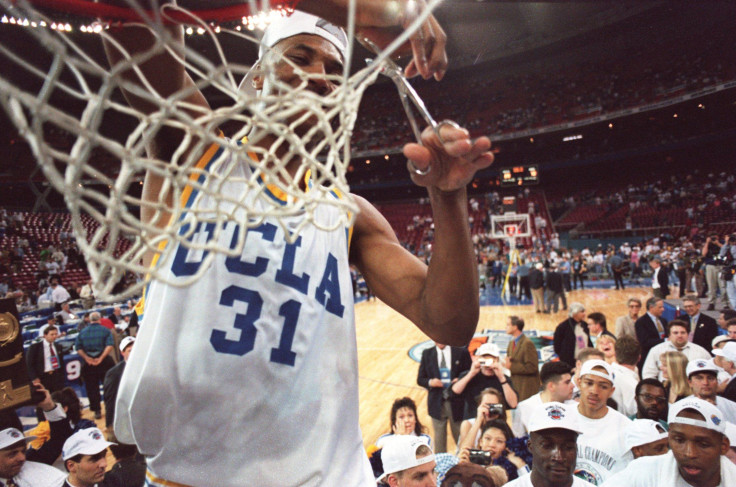O'Bannon v NCAA: Federal Appeals Court Upholds Antitrust Laws Ruling On Pay For College Athletes

The Ninth Circuit Court of Appeals upheld a lower court ruling Wednesday that the NCAA “is not above antitrust laws,” the latest development in an important decision from the Ed O'Bannon case surrounding proposed pay for certain college athletes. A three-judge panel decided NCAA rules restricting what monetary compensation athletes can receive while playing collegiate sports violate antitrust laws, but it also rejected a proposal that would have allowed schools to award athletes $5,000 per year in deferred payment to team members, instead stating that the cost of attendance was enough.
"The NCAA is not above the antitrust laws, and courts cannot and must not shy away from requiring the NCAA to play by the Sherman Act’s rules," the panel wrote. "In this case, the NCAA’s rules have been more restrictive than necessary to maintain its tradition of amateurism in support of the college sports market. The Rule of Reason requires that the NCAA permit its schools to provide up to the cost of attendance to their student athletes. It does not require more."
The panel, comprised of judges Sidney R. Thomas, Jay S. Bybee and Gordon J. Quist, was unanimous in its finding that the NCAA's rules violated antitrust laws. Thomas filed a separate opinion concurring that the NCAA violated antitrust laws but also stated in partial dissent that he would have concurred with the ruling of U.S. District Judge Claudia Wilken “in all respects,” including allowing for the $5,000 per year payment.
Initial NCAA statement regarding O'Bannon decision: pic.twitter.com/qk9hc8OBqn
— NCAA (@NCAA) September 30, 2015
The NCAA responded to the decision Wednesday, lauding the panel's decision to throw out the payment plan. "We have not completely reviewed the court's 78-page decision, but we agree with the court that the injunction 'allowing students to be paid cash compensation of up to $5,000 per year was erroneous,'" said NCAA President Mark Emmert in a statement. "Since Aug. 1, the NCAA has allowed member schools to provide up to full cost of attendance; however, we disagree that it should be mandated by courts."
The O'Bannon case has come to represent a bigger debate about collegiate sports and whether its athletes should be paid. The case began in the summer of 2009, when O'Bannon, a former UCLA basketball player, had a lawsuit filed on his behalf. The plaintiffs sought an injunction that would change the NCAA limits on what top football and basketball players can earn for playing sports and having their likenesses used throughout mediums like television broadcasts and video games. Wilken ruled last August that the NCAA's rules at the time violated antitrust laws.
While the NCAA has steadfastly maintained its athletes are amateurs, steps to expand their rights have advanced. The five most powerful conferences in the NCAA -- the ACC, Big 12, Big Ten, SEC and Pac-12 -- voted to allow schools to offer the full cost of attendance in January. The NCAA scored a victory last month when the National Labor Relations Board overturned a finding that Northwestern University football players were employees who could unionize.
© Copyright IBTimes 2025. All rights reserved.






















